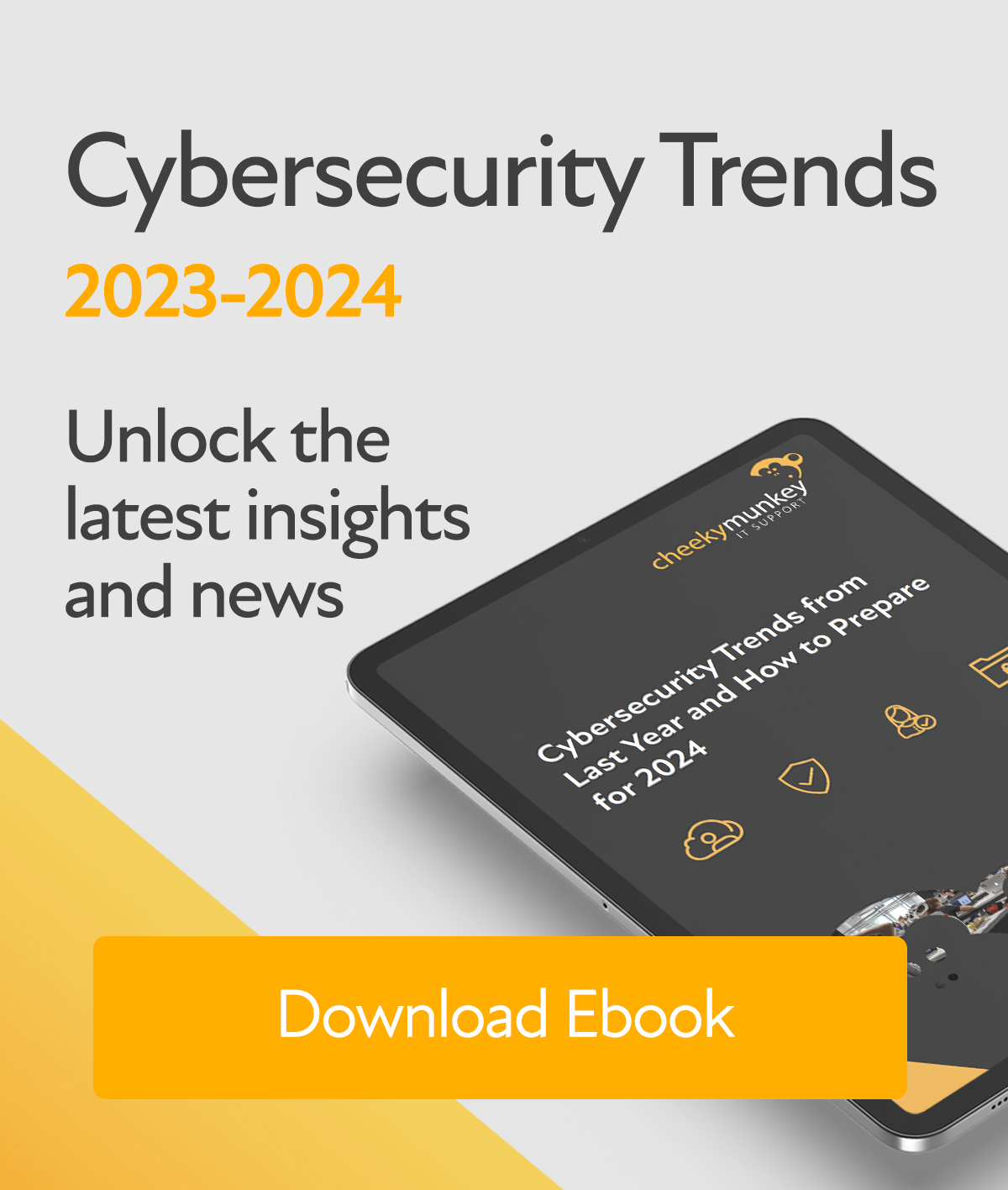Survey undertaken by the recruitment industry’s top IT support provider, Cheeky Munkey.
Recruitment is a leading industry in the UK which is continuing to grow as employees continue to seek to improve their career prospects, salary and opportunities, particularly in times of economic uncertainty.
Although unemployment in Britain is currently at its lowest level since the 1970s, there are still around 1.36 million people classed as unemployed, as well as those who are employed but are unhappy in their current role or looking to progress.
Candidates are the lifeblood of a recruitment agency. With fewer candidates competing for job roles, it is more important than ever for recruiters to attract the best talent and to succeed in appealing to the right candidates for the right job in this highly competitive market.
Not only is it vital that recruiters attract the best talent, but if you take the time to invest in and develop a relationship with your candidates, they are more likely to come back to you throughout the span of their career.
All recruiters need to keep up-to-date with the needs of the candidates they need to satisfy and to adjust their candidate experience accordingly.
We undertook a survey of millennials (ages 22-37) from 107 companies to discover what today’s jobseekers like and dislike about recruiters, how they go about searching for a new job plus how the interview process could be better improved in their eyes.
As well as many helpful insights, we also found some surprising results which are key for both today’s recruiters to implement in order to appeal to those seeking a new role and anyone in charge of the interview process within a company.
“Only 19% of millennials like to be cold contacted by a recruiter, yet this is an increasingly common practice in the recruitment industry” Click to Tweet
How are people undertaking the job hunting process?
Asking our respondents which job hunting approach yields them the best results, we found that industry-specific recruitment companies ranked 4th behind jobs boards, Google and company websites.
Technology has changed the way jobseekers find a job and how recruiters find candidates, meaning:
- Nearly two thirds of people rank online jobs boards as their preferred way of looking for a new job
- Online recruitment companies (44%) were stated as the preference by over twice as many people as high street recruiters (21%) when we asked what form of job hunting garners the best results
Online job portals and job boards remain the go-to destinations, despite the reputation for out-of-date listings, reams of irrelevant jobs to sift through and non-responsive search tools.
Technology has also become a yardstick for jobseekers. Our survey found that more people said a poor recruiter website was the top reason they would look to work with another recruitment agency.
Networking is still a vital tool – 20% of people surveyed said that word of mouth recommendations resulted in the best results when job hunting. Someone who can vouch for a candidate personally is advantageous for both the candidate and the company hiring.
What can we learn about what people dislike about recruitment companies?
Job hunting can be a stressful experience and there is so much that recruitment companies can do to ease this, in turn improving the candidate experience.
It is vital that candidates see the recruitment agency as an authentic and trustworthy source who has their best interest at heart – 43% of people said being seen as only a form of commission would cause them to move recruiters.
“More people said a poor recruiter website was the top reason they would look to work with another company than anything else, new recruitment survey reveals.” Click to Tweet
Recruiters also need to show that they understand that the jobseeker has financial commitments and aspirations and be open about salaries from the start of the recruitment process. Nearly six out of ten respondents stated inaccurate job information regarding salaries was something that makes a poor recruiter.
Many (43%) of our survey recipients stated that they did not receive enough contact or support from their recruitment agency, alluding to the fact that recruiters are too reliant on email and messaging in today’s recruitment industry.
“1 in 4 millennials surveyed stated receiving emails from a recruiter when they aren’t job hunting would put them off using that company in the future.” Click to Tweet
Ultimately, technology can make life easier, from improving the candidate experience to cutting down time recruiters spend doing administration to free them up to better connect with people. However, technology should enhance personal interaction – not replace it. Recruiters need to couple technology with a face-to-face approach.
Recruiters pushing candidates towards jobs that are unsuited to their skillset just to meet targets can only lead to despondency and an increased lack of confidence when the candidate gets a rejection or finds themself at an interview they are not suitable for. In turn, this increased lack of confidence in the candidate can be detrimental for future interviews.
Many of those surveyed were dissatisfied with pre-interview techniques, perhaps feeling that they waste time, the candidate process is too lengthy or they simply become stressed jumping through so many hoops.
Recruiters also need to take the time to listen to what potential candidates really want when interviewing them.
Understanding what drives the candidate (whether supporting a family or a passion for their chosen career) and where they see themselves in the future is key. Recruiters also need to know what the candidate sees as most important – the job title, salary, location or working hours – as this can differ vastly from person to person and can often be linked to status anxiety.
In turn, if you become recognised as a positive interviewer who listens to the candidates needs, they will recommend you by word of mouth.
Other frustrations from those surveyed included:
- Receiving emails from a recruiter when they aren’t looking for a job – this deterred over a quarter of those surveyed from using that company in the future
- Inaccurate job listings with regards to salary and location made 57% of people switch recruiters
- A lack of transparency over the office environment turned off 22% of respondents
- A lack of knowledge about a specific industry
Our survey also found that only 19% of people prefer to be cold contacted by a recruiter, yet this is an increasingly common practice in the recruitment industry.
Cold calling is clearly failing to engage with today’s job seekers. Recruitment agencies need to focus on the work that is done before the call is made for a more targeted outreach.
When asked what would make someone leave a recruiter for another, having a poor website (63%) was surprisingly ranked above inaccurate job listings (57%) and being seen only as a source of commission (45%).
This highlights again the need for recruiters to turn their attention to technology as the new face of job seeking to engage with a wider audience. However, technology needs to be coupled with human interaction and active listening for a positive candidate experience.
True relationships between recruiter and candidate happen when candidates can talk back. Specific solutions and software tailored to the needs of the recruitment industry are available to save time, enabling you to focus on human interaction.
Technology will enhance but always follow the core element of recruitment – human contact. This will ensure that your recruitment agency stands out and succeeds in helping job seekers find jobs that are specifically tailored to their needs.
How can the interview process be improved?
Once a recruiter has identified a prospective role for a candidate, it’s time to consider the interview process itself. As this is often the step in a job search that prospective employees dread the most, we asked our respondents to tell us what they felt would make the interview process better and the results should be of interest to anyone in a position that involves hiring people.
“6/10 millennials state that receiving feedback after an unsuccessful interview would make the whole process better – so why are companies still not doing it?” Click to Tweet
Unsurprisingly, clarity on salary expectations was ranked highly, with nearly 60% of those surveyed stating that they would like the expected salary to be made clear before an interview.
Feedback is a must for job seekers – something which is often overlooked by employers who do not provide feedback if a candidate is unsuccessful. This is nothing new, however, this is still a big frustration for 59% of respondents – the second highest factor in making the interview process better for candidates.
Remote interviews and flexible interview times would make life easier for those who are already working and have to take time out of their job in order to attend an interview. Nearly 37% of those surveyed would like the option to interview remotely, whilst just under 20% would like an interview time outside of core office hours.
“The ability to interview remotely for preliminary interviews was chosen by over ⅓ of millennials when asked for ways in which the interview process could be improved” Click to Tweet
Meeting the team and exploring the office was also deemed to be important to prospective employees, with nearly 54% stating this as a preference. An agenda ahead of the interview is also preferred by nearly 39% of respondents, in order to gauge the format and expectations of the interview itself.
Improving the interview process benefits not only the candidate, making them feel comfortable and confident, but also the employer and the recruiter, who wish to find the best person for the vacancy, ahead of their competition.
While traditional recruitment techniques are still valuable – and often essential – in today’s market, it’s clear to see that new approaches must be adopted in order to keep pace with the ever-changing employment landscape and appeal to the largest demographic in the workforce – millennials.
As Generation Z begin to enter the workforce, it’s also crucial to ensure recruitment practices continually evolve to appeal to this new era who, as wholly digitally adept, are expected to be more competitive, independent and entrepreneurial than previous candidates, with a stronger focus on job security.


 Previous
Previous






